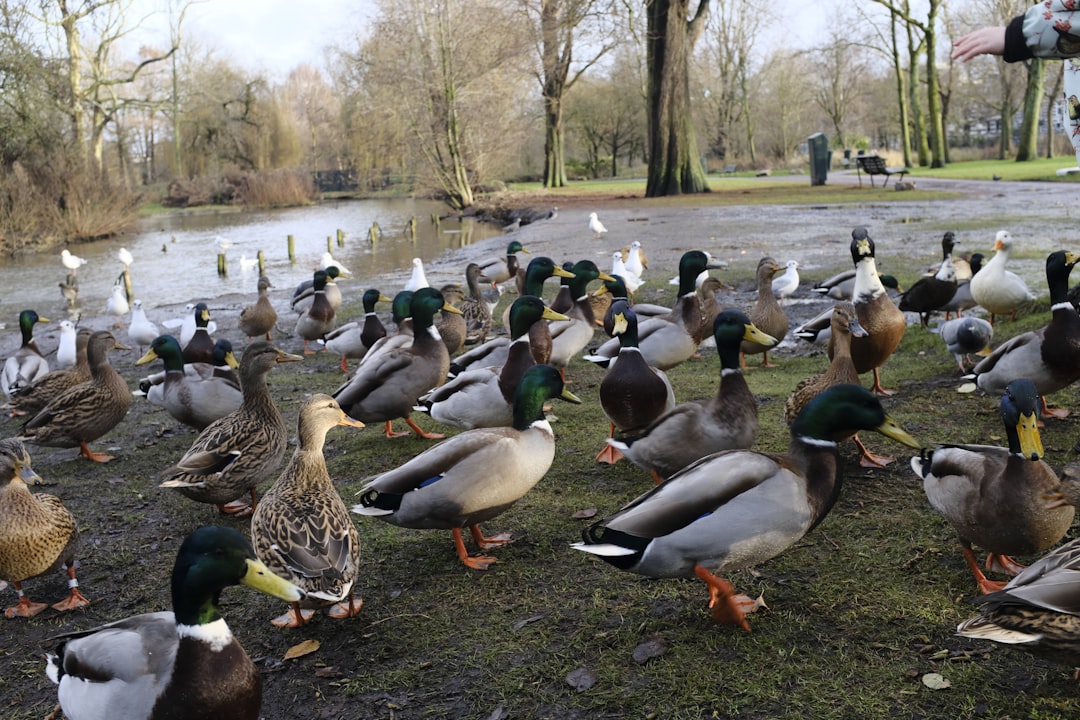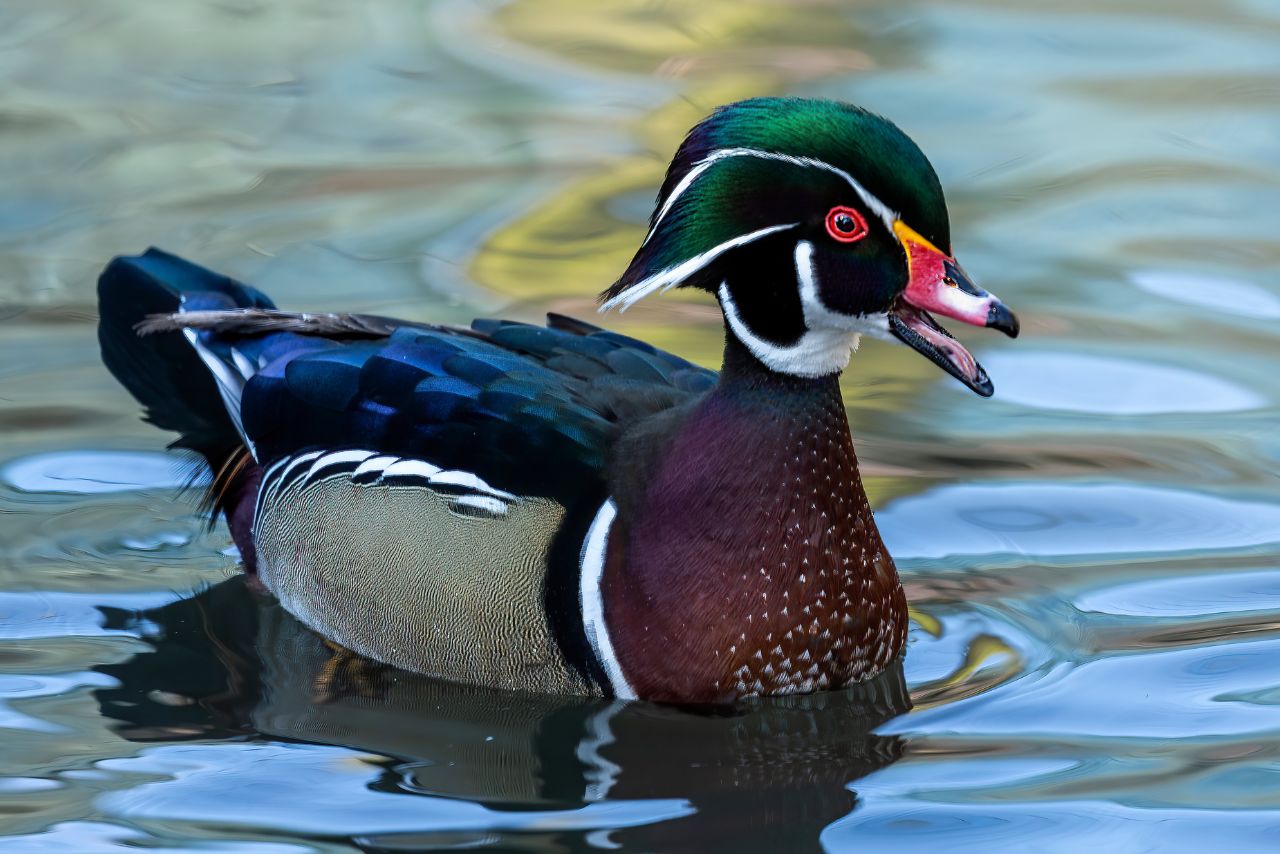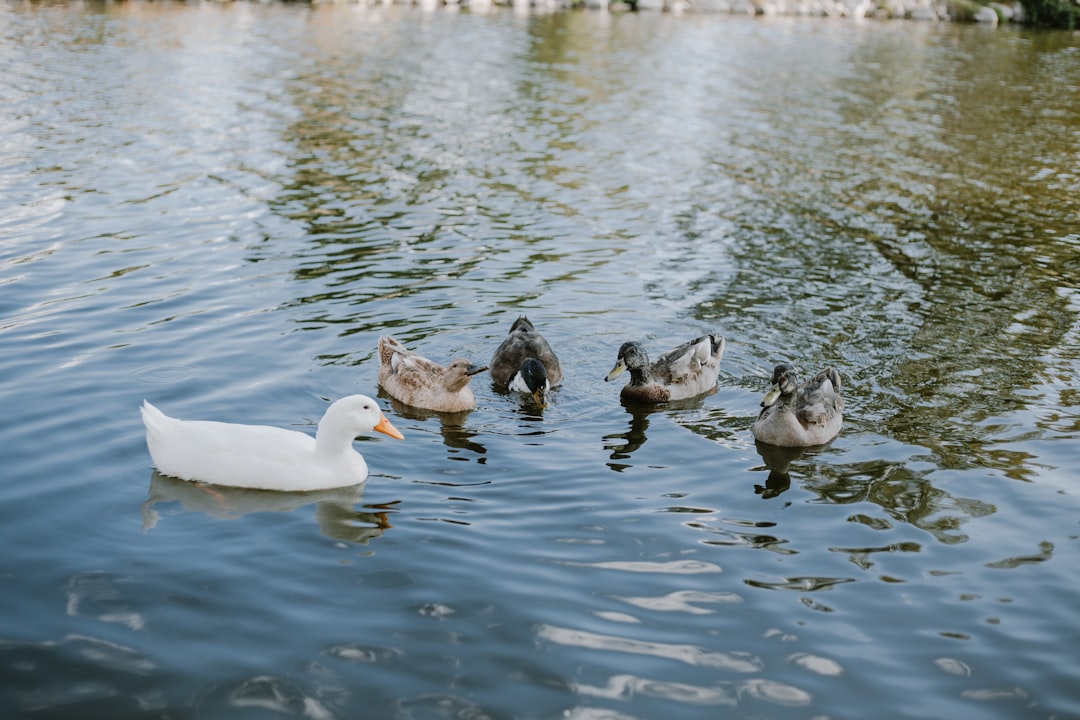Ducks are known for their distinct quacking sound, but did you know that there are different types of duck calls?
Whether you’re a curious animal lover or a hunter looking to attract ducks, it’s important to understand the various sounds that ducks make and what they mean.
Ducks make a variety of sounds, including quacks, honks, whistles, and grunts. The most well-known sound associated with ducks is the quack, which is typically made by female ducks to communicate with their offspring.
Male ducks, on the other hand, often make a variety of different calls to attract females or defend their territory. These calls can range from loud honks to soft whistles, and can be used to signal danger or to express aggression.
In this article, we’ll explore the different types of duck calls What Sound Does A Duck Make? and what they communicate, as well as some interesting facts about these fascinating birds.
Interestingly, different species of ducks have distinct calls, making it possible for experienced birdwatchers to identify them based on their vocalizations.
What Sound Does A Duck Make?
The most common sound that a duck makes is a quack. This is the sound that is typically associated with ducks, and it is made by the female mallard duck.
The male mallard duck does not quack, but he makes a rasping, one- or two-noted call.
Other sounds that ducks make include:
- Honk: This is a loud, guttural sound that is made by some species of ducks, such as the Canada goose.
- Whistle: This is a high-pitched sound that is made by some species of ducks, such as the pintail duck.
- Peep: This is a high-pitched, chirping sound that is made by ducklings.
- Groan: This is a low-pitched sound that is made by ducks when they are in pain or distress.
- Hiss: This is a sharp, hissing sound that is made by ducks when they are threatened or scared.
Ducks make these sounds to communicate with each other. They use different sounds to convey different messages, such as finding food, warning of danger, or attracting mates.
Sounds Of A Duck
Overall, understanding the sounds that ducks make can provide valuable insight into their behavior and communication patterns.
Whether you’re observing them in the wild or keeping them as pets, recognizing different duck calls can enhance your interactions with these fascinating birds.
Bird Sounds Like A Duck
If you’ve ever heard a bird that sounds like a duck, you may be surprised to learn that it’s not actually a duck at all.
In fact, there are several species of birds that can produce sounds that closely resemble those of ducks. One common example is the wood duck, which is known for its distinct whistle-like call.
Other birds, such as the common merganser, also have a similar quacking sound. While these bird calls may sound like ducks, it’s important to note that they are distinct species with their own unique characteristics.
Female Ducks Louder Than Males

Female ducks are typically louder than males, it’s important to note that individual ducks can have their own unique vocalizations. Factors such as age, sex, and environmental conditions can all influence the sounds that a duck makes.
By listening closely and observing their behavior, you can gain a deeper appreciation for these amazing animals and the way they communicate with each other.
Sounds Mainly Attracting Ducks
Ducks make a variety of sounds, each with their own purpose and meaning. From the classic quack to the honk and whistle, these vocalizations can provide valuable insight into duck behavior and communication patterns.
Why Do Ducks Make Sounds?

Ducks make sounds primarily for communication purposes. Their vocalizations are used to convey everything from warnings of danger to attracting a mate.
Ducks use sounds as a means of establishing their territory and social hierarchy within their flocks.
By understanding the different types of duck calls and what they mean, you can gain valuable insights into how these birds interact with each other and their environment.
Are Ducks Vocal?
Yes, ducks are vocal animals and make a variety of sounds for communication purposes. From quacks to honks, whistles, and grunts, each sound has its own meaning and purpose.
Male ducks often use different calls to attract females or defend their territory while female ducks typically use quacks to communicate with their offspring.
Vocal Duck Sounds
Overall, duck vocalizations are an important aspect of their behavior and communication.
By learning to recognize and understand the different sounds they make, you can gain valuable insights into their social interactions and behavior patterns.
- Quack. The classic sound made by female ducks. It is usually a short, sharp sound that can indicate excitement or agitation.
- Hiss. This is a warning sound made by ducks when they feel threatened or cornered. It is usually accompanied by a raised head and fluffed feathers.
- Grunt. Male ducks make this sound during mating season to attract females. It is a low, guttural sound that can be heard from a distance.
- Chuckle. A soft, low sound made by ducks when they are content or relaxed. It can also be a greeting sound between ducks.
- Wheeze. This is a distress sound made by ducks when they are struggling to breathe. It can be a sign of illness or injury.
- Sneeze. Ducks can sneeze just like humans do. It is a way to clear their nostrils of dust or other irritants.
- Quackling. This is a series of quick, high-pitched quacks made by female ducks. It is usually a sign of excitement or agitation.
- Groan. Male ducks make this sound during mating season to show dominance over other males. It is a deep, rumbling sound that can be heard from a distance.
- Squeal. This is a sound made by young ducks when they are in distress or being handled. It is similar to a human baby’s cry.
- Gargle. Ducks make this sound when they are cleaning their feathers. It is a low, gurgling sound that can be quite soothing to listen to.
- Coo. This is a soft, gentle sound made by ducks when they are feeling calm and relaxed. It is a sign of contentment and happiness.
- Squawk. A loud, harsh sound made by ducks when they are alarmed or in danger. It is a warning signal to other ducks to be on the lookout.
- Honk. This is a sound made by male ducks during flight. It is a way to communicate with other ducks and to stay in formation.
- Chirp. This is a high-pitched sound made by baby ducks. It is a way to communicate with their mother and siblings.
- Trill. This is a rolling, melodious sound made by ducks when they are feeling happy and content.
Non-vocal Duck Sounds
Apart from vocalizations, ducks also produce non-vocal sounds. When taking off for flight, ducks make a loud whistling sound due to the air rushing through their wings.
During courtship behavior, male ducks create a drumming sound by flapping their wings in the air. This sound can be heard from a distance and is used to attract females.
Another fascinating non-vocal sound produced by ducks is their ability to purr.
Why Do Ducks Sound Like They Are Laughing?
Another interesting sound that ducks make is a laughing sound. It’s often mistaken for a vocalization, but it’s actually a non-vocal sound made by the wings of the duck.
When ducks flap their wings rapidly, it creates a whistling or rustling noise that sounds like laughter.
This laughing sound is particularly common in species such as mallards and wood ducks during courtship behavior. The male will often spread his wings and flap them rapidly while swimming around the female in an attempt to impress her.
Why Do Ducks Make So Much Noise Sounds At Night?
While ducks are known to make noise during the day, they may also be heard making sounds at night. This behavior is more common during mating season when male ducks are trying to attract females.
The sound of their wings flapping or drumming can be heard from a distance as they try to impress potential mates.
What Noises Do Ducks Make When Happy?
Ducks make a variety of sounds to express their emotions, and when they are happy, they often produce a trilling sound. The trill is a melodious rolling sound that indicates contentment and relaxation.
Ducks may produce this sound while floating on the water or resting in the sun.
Another way to tell if ducks are happy is by observing their body language. Happy ducks tend to be more active and playful, flapping their wings, chasing each other, and splashing in the water.
They may also wag their tails or bob their heads while making soft cooing sounds.
What Animal Makes A Duck Sound At Night?
It’s not uncommon for people to mistake other animals for ducks when hearing their sounds at night. Some frogs, for example, can make a sound similar to a duck’s quack.
Conclusion! What Sound Does A Duck Make?
Ducks are fascinating creatures that make a variety of sounds for communication purposes.
Whether it’s the laughter-like sound during courtship behavior or the trilling sound when they’re happy, these vocalizations offer insight into their emotional state and social interactions.
However, it’s important to balance our appreciation for their sounds with respect for nearby human residents.
By minimizing noise levels during nighttime hours and respecting their natural behaviors and habitats, we can coexist peacefully with these incredible birds.
FAQs
What Sound Does a Duck Make?
Ducks make a variety of sounds, including quacks, honks, grunts, and hisses.
Why Do Ducks Make Noise?
Ducks use vocalizations to communicate with each other and express their emotions.
When Do Ducks Make the Most Noise?
Ducks are more vocal during mating season and when they feel threatened or disturbed.
What Does a Happy Duck Sound Like?
Happy ducks often produce a trilling sound that indicates contentment and relaxation.
Can Other Animals Make Sounds Similar to Ducks?
Yes, some frogs and owls can produce sounds that resemble a duck’s quack or honk, but actual duck sounds are easily recognizable near wetlands or ponds.





